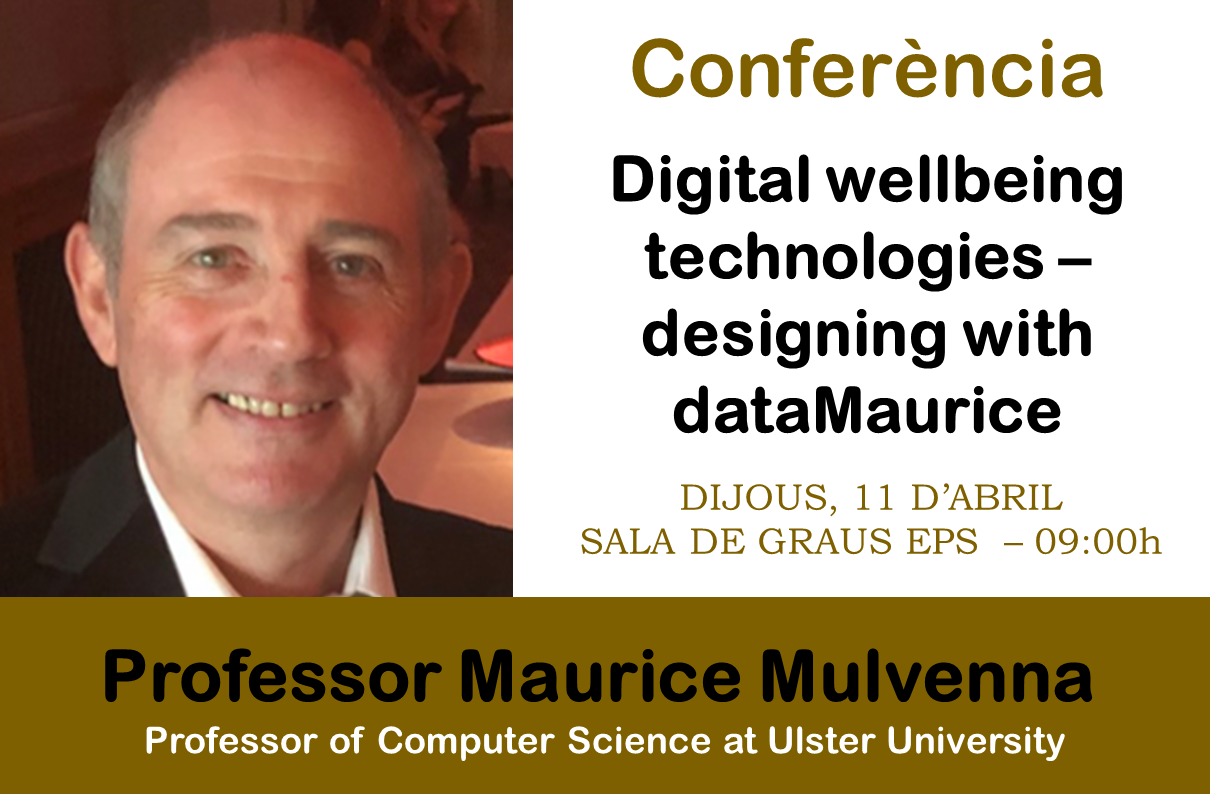Conferència "Digital wellbeing technologies – designing with data"
- Lloc:
- Sala de Graus EPS
- Adreça:
Jaume II, 69
- Preu:
- Activitat gratuïta
- Inici:

En el marc del Grau en Enginyeria Informàtica i el centre de recerca Inspires, la Sala de Graus de l'Escola Politècnica Superior acollirà el dijous 11 d'abril a partir de les 9:00 hores la conferència "Digital wellbeing technologies – designing with data" a càrrec professor Maurice Mulvenna (Professor of Computer Science at Ulster University).
La conferència és oberta a tothom!
Abstract
Digital wellbeing technologies include mobile and tablet apps that are used to support the health and wellbeing needs of, often vulnerable people. Users include people living with dementia, intellectual disability, depression, autism, postnatal depression, anxiety or other health consideration. While many wellbeing technologies began as assistive technologies, the explosion in popularity of app platforms has resulted in growing use and popularity of these digital technologies.
However, as with assistive technologies, the user abandonment rate of these digital wellbeing technologies is high. Common usability approaches have specific failings that mean they do not cater well for the specific needs of vulnerable people. So how do we design these apps and how can we validate their design?
In this talk, the value of behavioural usage data is explored as a key to understanding what kind of designs actually work for digital wellbeing technologies and apps. In order to understand the behaviour of users in interacting with the wellbeing apps, the app has to include code that records each interactional event. The resulting event log stores the interactional data on all users, most frequently in a cloud-hosted database.
The event log data can also include Ecological Momentary Assessment (EMA) data where validated scales such as, for example, Patient Health Questionnaire (PHQ-9) for depression can be gathered as users interact with their app. However, the core benefit of accruing event log data is the valuable aggregated information that can be discovered from the log data analysis, using machine learning approaches. The talk describes the key findings using machine learning, from a digital wellbeing reminiscence app for people living with dementia.
The talk also illustrates that key expertise from different disciplines is required in order to design digital wellbeing apps used by vulnerable people, including technical development skills, and academic disciplines including psychology, nursing, computer science and others depending on the planned development area.
Obviously, gathering data about vulnerable users, storing it on cloud databases and making is available for machine learning raises significant ethical issues on event logging. The talk discusses GDPR Article 89 derogation on data collection for research purposes and asks the audience to consider the implications of this for users and for research – arguably, for individual and for greater (scientific) good.
